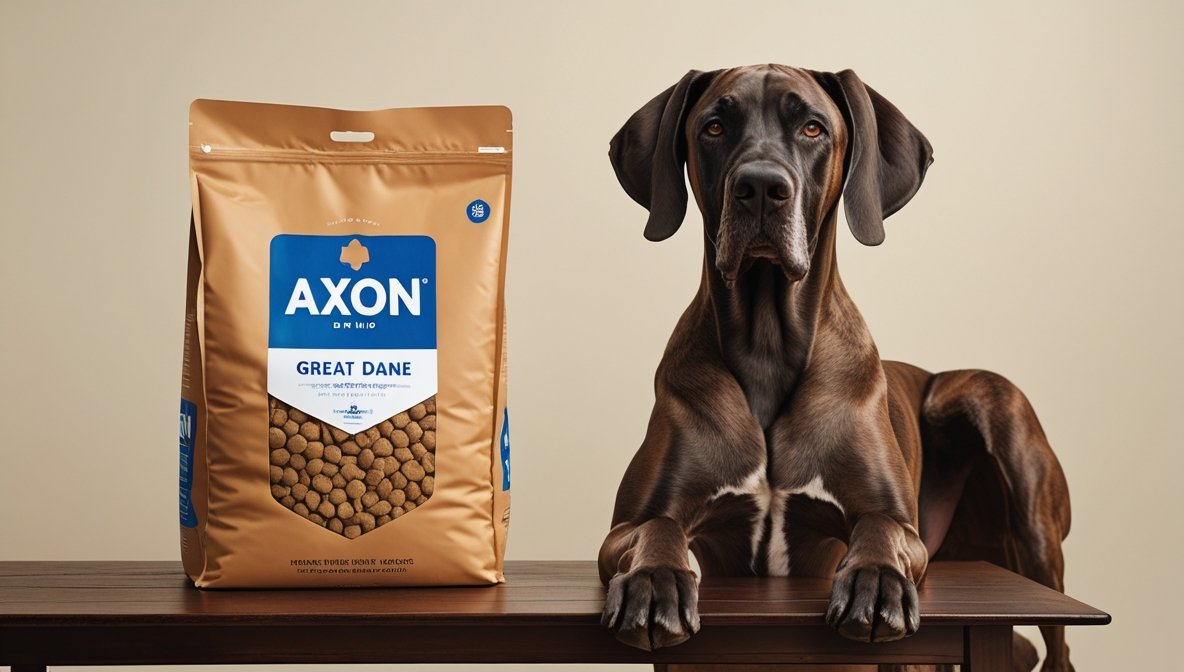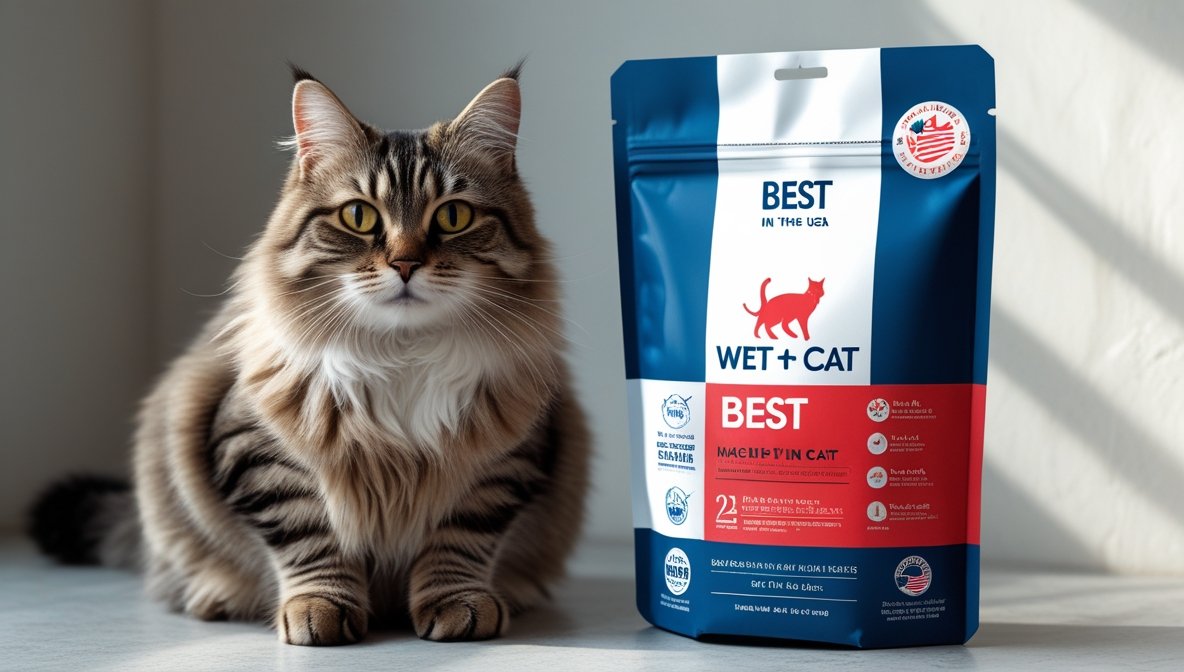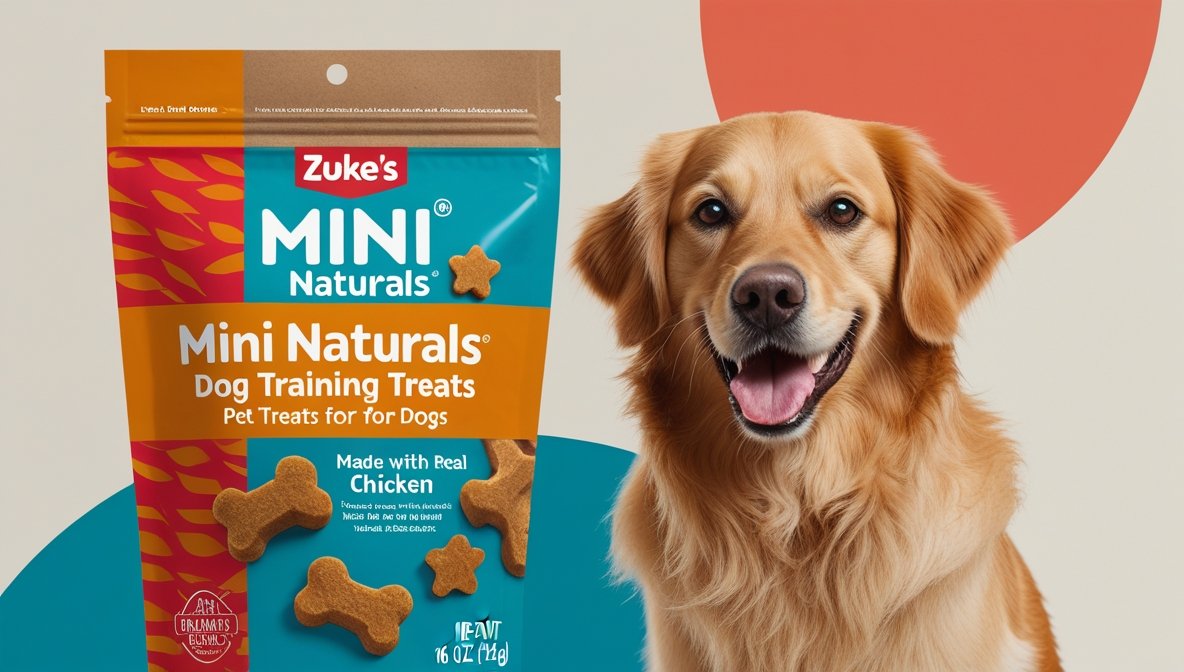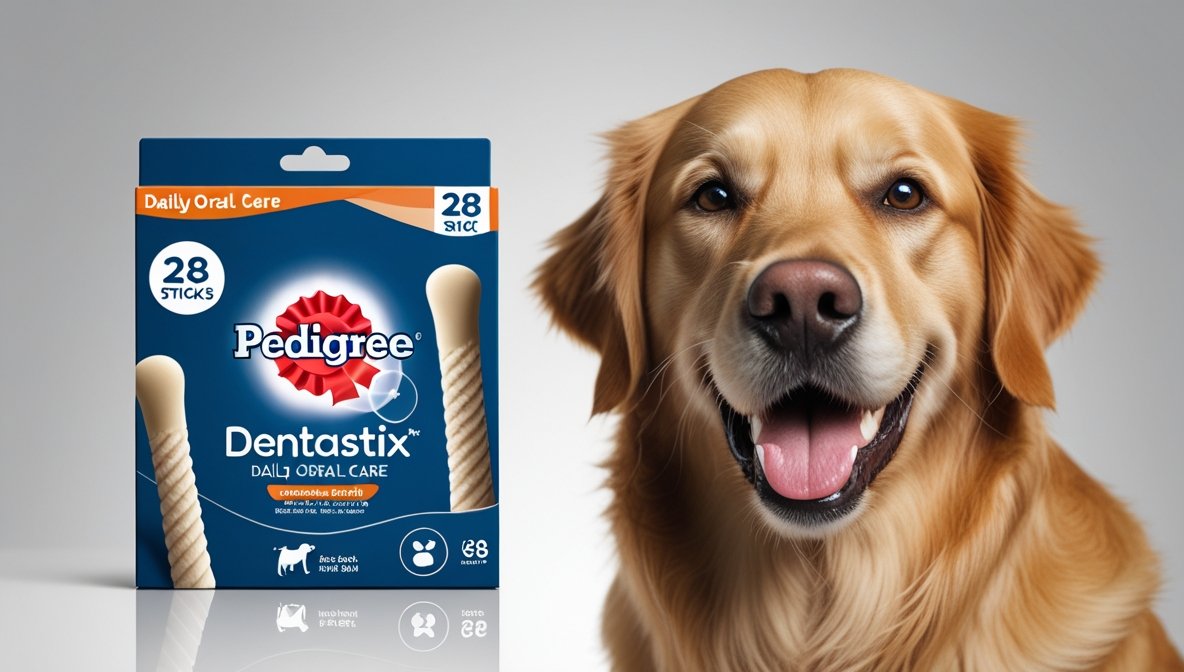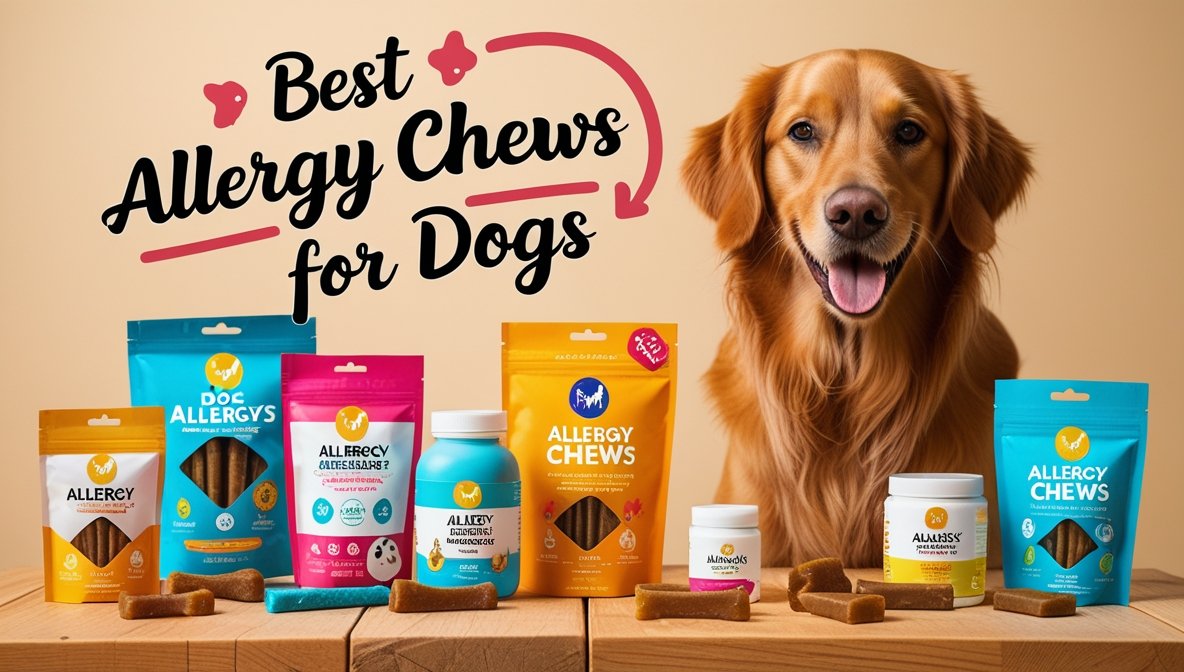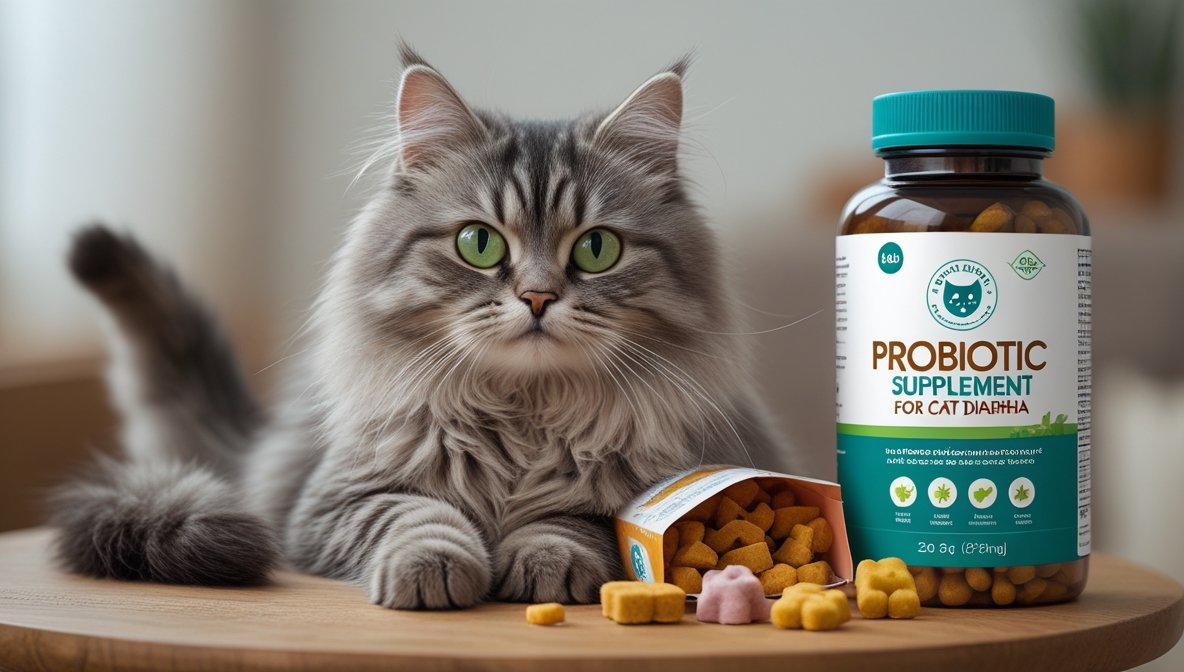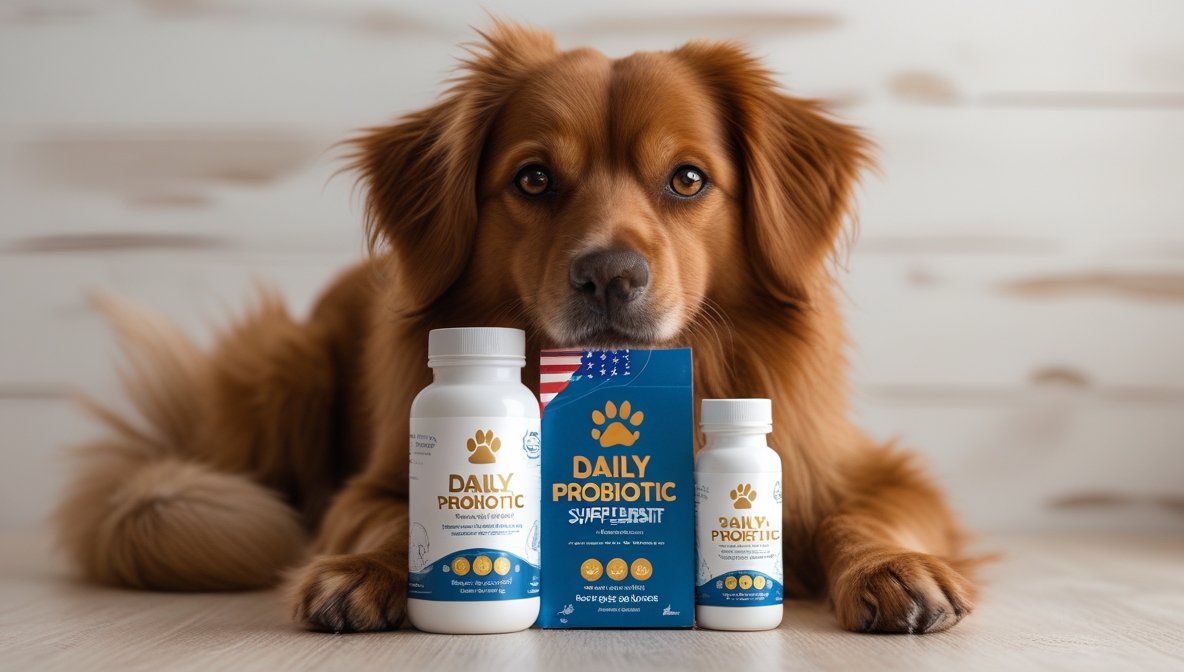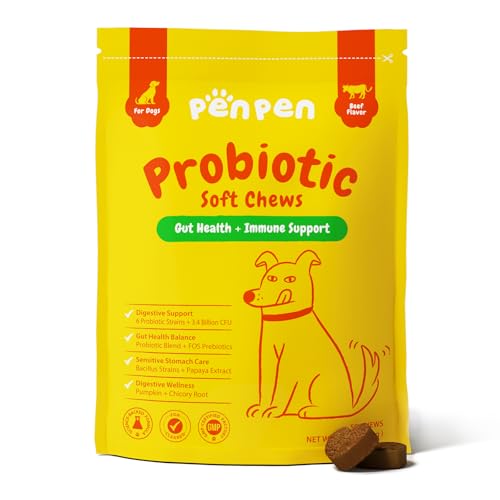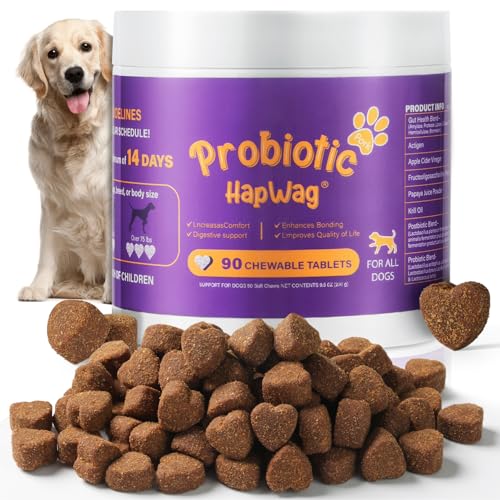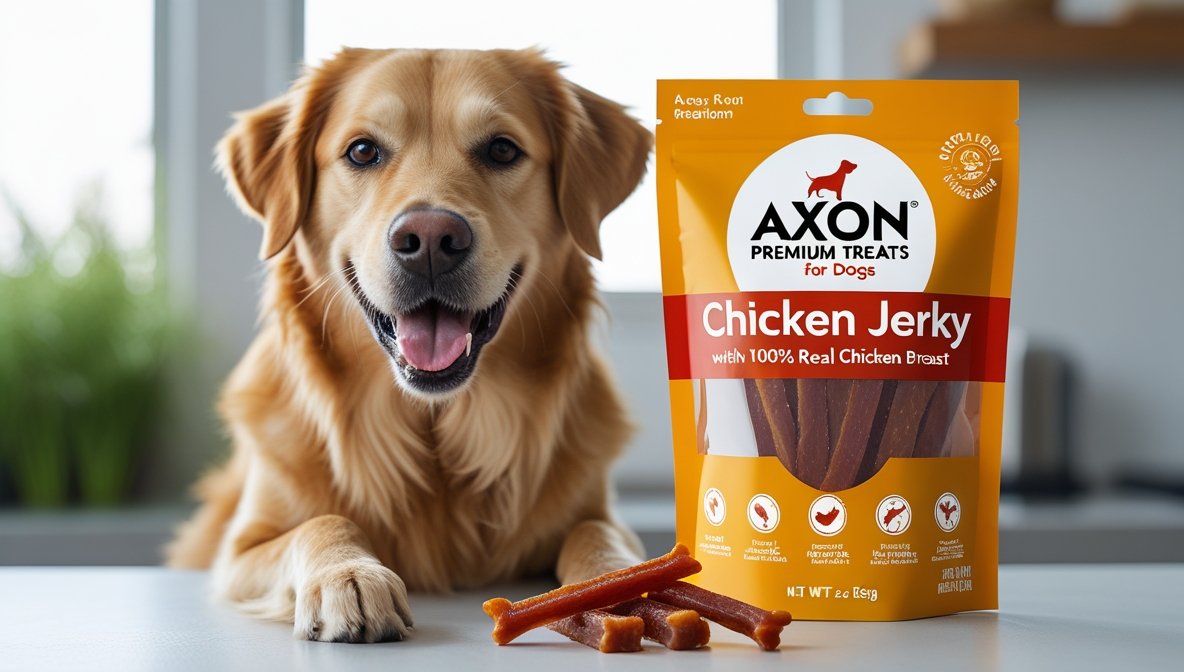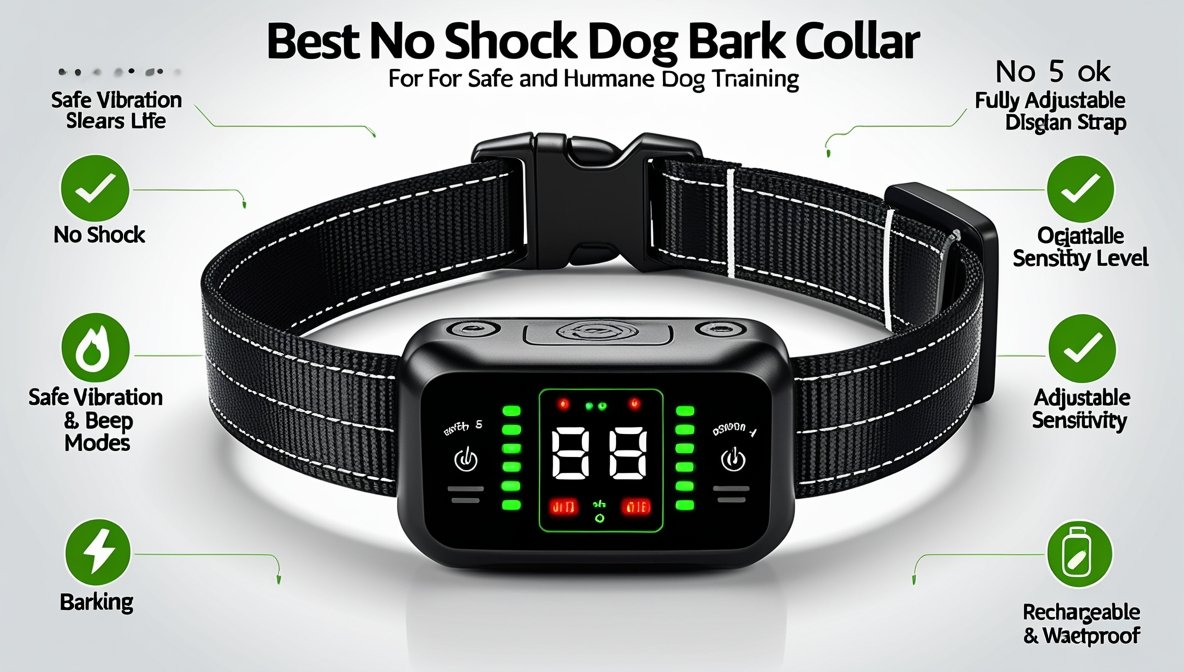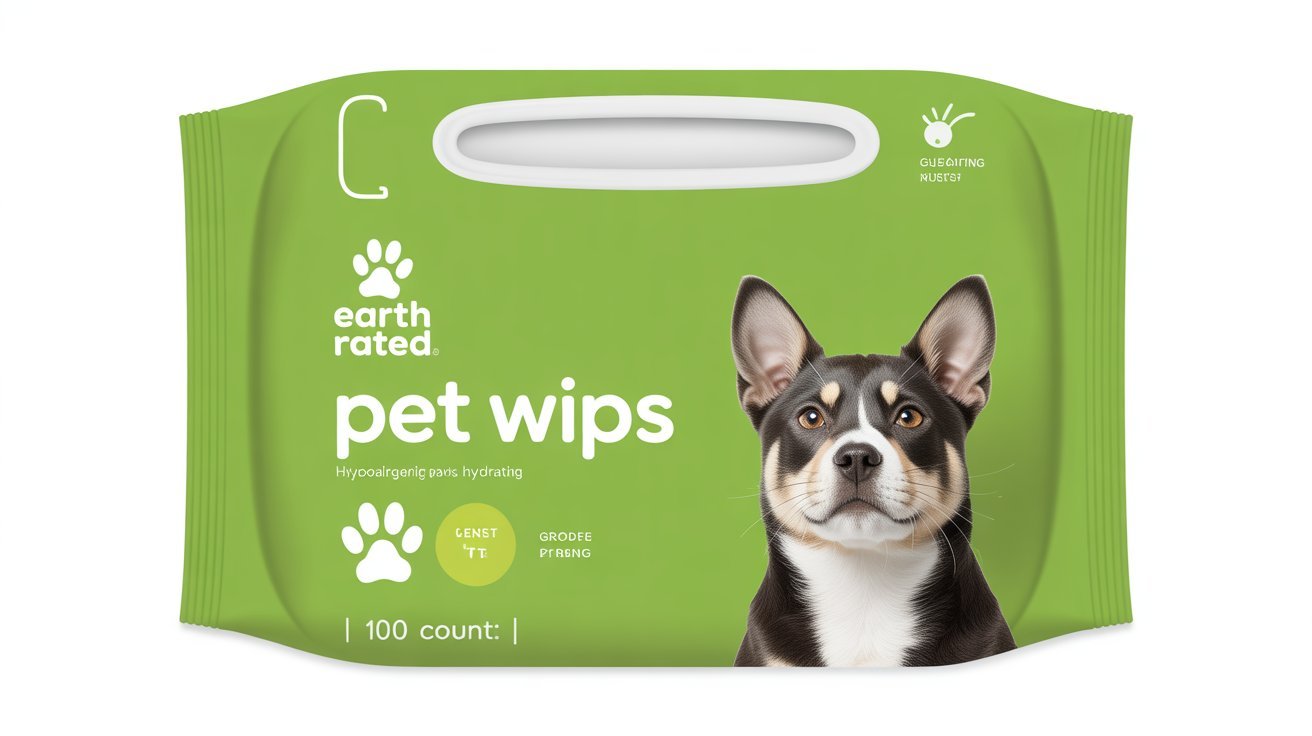A probiotic is a live beneficial microorganism that supports your dog’s gut health and overall wellness. Feeding a daily probiotic helps keep the gut microbiome balanced, boosting digestion, immunity, and even mood . In fact, probiotics can lower gastrointestinal inflammation and support digestion while helping your pup recover from viruses or upset stomach. These “good bacteria” crowd out harmful pathogens and produce beneficial short-chain fatty acids, which help the immune system and gut lining. Research shows daily probiotics can reduce diarrhea, constipation, and intestinal inflammation, while even helping with urinary health and skin issues. In short, the best daily probiotic supplement for dogs is one packed with proven strains and enough CFUs (colony-forming units) to make a difference
Why Give Dogs a Daily Probiotic?
Dogs naturally have billions of microbes in their gut, and a balanced microbiome is key to health. Daily probiotics can:
- Aid Digestion: Probiotics (e.g. Lactobacillus and Bifidobacterium) help break down food, improving nutrient absorption
- Promote Gut Comfort: They help relieve diarrhea, constipation, gas or upset stomach. Studies show probiotics speed gut recovery after illness or stress and normalize bowel movements.
- Support Immunity: About 70% of a dog’s immune system lives in the gut. By keeping gut conditions normal, probiotics allow immune defenses to work better against infections
- Reduce Inflammation & Allergies: Probiotics can curb gut inflammation and help manage skin allergies. Research links allergic dogs to low gut diversity – adding probiotics can lessen allergy symptoms by balancing gut flora best daily probiotic supplement for dogs.
- Enhance Skin and Coat: Healthy gut microbes may lead to a shinier coat and fewer skin issues. A balanced gut supports nutrient absorption and can alleviate itchiness
- Calm Behavior: There’s a “gut-brain axis” connection. A canine study found that dogs given the probiotic B. longum BL999 were calmer (less barking, pacing) in stressful situations
- Combat Bad Breath: By reducing gut imbalances, probiotics can also help eliminate bad breath caused by digestive issues best daily probiotic supplement for dogs.
In summary, a daily probiotic can give your dog “an edge” against digestive upset, allergies, and stress. As Cornell Vet explains, probiotics are a “cornerstone of preventative care” for many dogs. They are widely recognized as a well-known therapy for diarrhea and gastrointestinal upset, and more recent research shows benefits for UTIs, immune disorders, and even anxiety best daily probiotic supplement for dogs.
How to Choose the Best Daily Probiotic Supplement for Dogs
Not all probiotics are created equal. When comparing daily probiotic supplements, consider these factors:
- Dog-Specific Formula: Always use a product designed for dogs. Human probiotics (and dairy yogurts) are not formulated for canine guts. Purina notes “no” when asked if human probiotics can be used for pets since safety and effective strains differ between species.
- Live, Shelf-Stable Strains: Look for guaranteed live strains through the expiration date. Good products list the exact species and a CFU count at the time of manufacture. Cornell advises checking for an expiration date and evidence of viability – the label should guarantee how many live bacteria remain
- CFU Count: Quality supplements typically have between 1–10 billion CFUs per dose. Cornell recommends roughly 1–10 billion CFUs daily for most dogs. A higher CFU count (in the multi-billions) often means stronger effect, but it depends on the specific strains best daily probiotic supplement for dogs.
- Probiotic Strains: A multi-strain blend is best. Common effective genera include Lactobacillus, Bifidobacterium, and Enterococcus. For example, Enterococcus faecium SF68 (found in many dog probiotics) has been shown to improve GI health and reduce diarrhea. Some formulas also include Bacillus coagulans, Bacillus subtilis, and Saccharomyces boulardii best daily probiotic supplement for dogs.
- Additives: Ideally, the probiotic should have no fillers or harmful ingredients. Avoid products with xylitol, garlic, onions, or excessive additives best daily probiotic supplement for dogs.
- Form Factor: Daily probiotics come as chewables, powders, capsules, or soft treats. Choose one your dog will reliably eat. Chewables (bones, bites) can be a tasty treat, while powders can mix with food. Capsules/powders can be hidden in a little peanut butter. A Cornell vet notes that even picky dogs can take probiotics hidden in a treat best daily probiotic supplement for dogs.
- Veterinarian Recommended: Look for vet-approved brands or products backed by clinical studies. Cornell’s veterinary nutrition professor Dr. Wakshlag specifically recommends Purina FortiFlora and Nutramax Proviable as dog probiotics with documented efficacy. These have published research supporting their use best daily probiotic supplement for dogs.
Veterinarians stress tailoring choices to your dog’s needs. For a dog with chronic diarrhea or after antibiotics, a high-CFU, multi-strain powder might be ideal. For sensitive pets, a smaller daily chew might ensure consistent intake. Always follow the label instructions and your vet’s guidance on dosing
Top Vet-Recommended Daily Probiotic Supplements
Below are a few popular options often recommended by veterinarians (in the USA, Canada, Europe, etc.):
- Purina FortiFlora: A powdered probiotic (with 1×10^9 CFU) containing Enterococcus faecium. Widely used for digestive issues and often prescribed by vets It’s proven to help manage diarrhea and boost gut balance best daily probiotic supplement for dogs.
- Nutramax Proviable-DC: A capsule blend of 7 probiotic strains plus prebiotics. Recognized by Business Insider as a “top pick” for dog probiotics. It may ease both short-term and chronic GI problems and is recommended by Cornell as well best daily probiotic supplement for dogs.
- PetLab Co. Probiotic Chews: A soft chew that is clinically studied for daily use (over 3 million dogs used it). It contains 6 billion CFUs of Enterococcus, Bifidobacterium, and Lactobacillus. (No direct citation, but this brand emphasizes vet formulation).
- Zesty Paws Probiotic Bites: Another chewable with 4 strains including Bacillus and Lactobacillus. Many owners report improvements in digestion and skin health best daily probiotic supplement for dogs.
- VetriScience Probiotic Everyday: A capsule with Enterococcus, Lactobacillus, and FOS prebiotics. Known for being hypoallergenic (no common allergens) and daily use formula.
- Vets Best Tummy Rub Chews: Chewable probiotic with colostrum and pumpkin to soothe stomach, containing 5 strains best daily probiotic supplement for dogs.
Each of these supplies daily probiotic CFUs and is formulated for ongoing use. Brands like these are widely available in pet stores across the USA, Canada, Mexico, and Europe, both in-store and online. Always check that the seller ships to your region best daily probiotic supplement for dogs.
Natural and Homemade Probiotics for Dogs
Besides commercial supplements, certain fermented foods and natural items can supply probiotics. These can complement your dog’s diet (in moderation):
- Kefir: A fermented milk drink packed with ~50 species of bacteria and yeasts. Feeding small amounts of plain (no sugar) kefir to dogs has been shown to increase beneficial Lactobacillus populations in the gut. Start with tiny doses (¼ teaspoon per 15 lb) and watch for tolerance. Do not give kefir if your dog is lactose-intolerant, allergic to dairy, or on tetracycline antibiotics
- Plain Yogurt: Unsweetened Greek yogurt contains Streptococcus thermophilus and Lactobacillus bulgaricus. It can be given as a treat or mixed in food. Again, choose dairy-friendly dogs and avoid products with sugar or xylitol. Many dog owners use a spoonful of yogurt to sneak in probiotics.
- Cottage Cheese: Contains Lactobacillus acidophilus and Bifidobacterium bifidum. Suitable as a low-lactose option – start with a tablespoon best daily probiotic supplement for dogs.
- Fermented Vegetables: Small amounts of plain sauerkraut, fermented carrots, or broccoli can introduce Bifidobacteria and Lactobacillus. Use dog-safe, vinegar-free versions. These are also high in fiber (prebiotic) to feed good bacteria. Introduce very gradually (a spoonful)
- Green Tripe: This raw cow stomach lining is naturally rich in Lactobacillus acidophilus and digestive enzymes. Cooked tripe loses probiotics, so raw tripe (from safe sources) can benefit a healthy dog’s gut. Only give in small amounts and under vet approval, as it’s rich and can be a pathogen risk if not handled properly best daily probiotic supplement for dogs.
- Pumpkin and Fruits: Not rich in live cultures themselves, pumpkin and fruits (blueberries, bananas) are high in fiber and can serve as bases for probiotic treats. E.g., mixing yogurt with pumpkin, banana, or even peanut butter and freezing into chewable treats makes a healthy, gut-friendly snack. PetLabCo suggests a frozen treat recipe using yogurt, pumpkin, and peanut butter (Example: 2 cups plain Greek yogurt + ¼ cup peanut butter + ¼ cup pumpkin, frozen in molds
A bowl of plain yogurt mixed with banana and pumpkin – examples of natural probiotic foods (like kefir, yogurt, fermented veggies) that can support a dog’s gut health best daily probiotic supplement for dogs.
Important: Natural sources alone may not provide consistent probiotic counts. Research on feeding probiotics from foods is still limited. Always introduce new foods gradually. Start with very small portions (1 teaspoon) to test tolerance. These should only be a small part of the diet (treats should be <10% of calories. Too much dairy or fermented food can cause GI upset or weight gain. Consult your vet before adding homemade probiotics, especially if your dog has health issues
Probiotics for Specific Dog Health Issues
Probiotics can target certain conditions. Below are common scenarios where a daily probiotic may help:
Skin Allergies & Itching
Dogs with allergies (atopic dermatitis) often have gut dysbiosis. Studies suggest that giving probiotics can reduce allergy symptoms. For example, one trial found that dogs with allergic skin disease (atopic dermatitis) had less severe symptoms when given a daily probiotic blend. The “good” bacteria help modulate the immune response, potentially calming itchy skin. Cornell vet Dr. Wakshlag even notes that probiotics benefited coat quality and allergy-prone dogs. Anecdotally, many owners find their dogs scratch less and have shinier coats on probiotics. Specialized products (like allergy-support chews with probiotics and omega oils) also exist best daily probiotic supplement for dogs.
In summary: A multi-strain probiotic can complement allergy treatments, but should not replace allergy medication. It may reduce flare-ups by balancing gut bacteria and immune signals
Yeast Infections and Smelly Ears
Probiotics can help control yeast overgrowth on skin and in ears. AKC explains that normal gut bacteria create an inhospitable environment for yeast. By competing with yeast, Lactobacillus strains (e.g. L. acidophilus) produce lactic acid and lower gut pH, making it harder for yeast to thrive Clinically, vets sometimes recommend probiotics as adjunct therapy for chronic yeast or ear infections. The idea is that by restoring the microbiome, yeast has less “room” to grow best daily probiotic supplement for dogs.
- If your dog is prone to itchy skin or recurrent ear yeast, talk to your vet about adding a probiotic. Products that specifically say “yeast balance” often contain Lactobacillus and Bifidobacteria.
Digestive Upset & Diarrhea
For dogs with sensitive stomachs, diarrhea, or colitis, probiotics are one of the first remedies vets try. Strains in Bifidobacterium, Lactobacillus, or Enterococcus (like E. faecium) can shorten bouts of diarrhea and firm stools. Purina notes that E. faecium SF68 in particular “have been shown to improve gastrointestinal health and reduce diarrhea” Pets experiencing diarrhea after boarding, diet changes, or antibiotics can benefit from a daily supplement to rebalance their gut flora. Business Insider also highlights that probiotics help “relieve diarrhea” and rebuild the gut microbiome after a virus. Many daily probiotic products explicitly advertise relief for loose stools.
Immune Support and Overall Well-Being
Since the gut holds much of the immune system, keeping it healthy helps fend off many diseases. Probiotics may help with mild inflammatory bowel issues (e.g. mild colitis) and may speed recovery from infections. Some owners report fewer vet visits for stomach upsets once their dog is on a good probiotic. Cornell’s summary emphasizes that probiotics strengthen the immune front line in the gut. Even for a healthy dog, a daily probiotic is often seen as a preventative measure – especially around stressors (vaccination, boarding, surgery) to give the dog’s gut a head start on balance best daily probiotic supplement for dogs.
Usage, Dosage & Safety
Veterinarians generally say probiotics are safe for most dogs, but there are guidelines to follow:
- Daily Use: You can give a daily probiotic to your dog, but always follow the product’s instructions and your vet’s advice. Purina’s veterinarian Dr. Cross explicitly advises: “Whether supplement or probiotic food, always follow directions on the package and your veterinarian’s advice” If your dog is healthy, probiotics are not strictly necessary every day; many owners use them proactively (holidays, travel, stress) or as needed. Cornell notes you can give probiotics before a known stressful event or even daily as part of long-term health care best daily probiotic supplement for dogs.
- Dosing: Start with the recommended dose on the label. If using a chewable daily treat, one per day is often enough for maintenance. For powders, mix into the dog’s meal as directed. Do not exceed 10% of a dog’s daily calories in treats or added foods this prevents excess calories and imbalances.
- Side Effects: Some dogs may have mild temporary side effects as their gut adjusts. Possible side effects include gas, bloating, or loose stools for the first few days These are usually mild and resolve quickly. If symptoms worsen or persist for a week, stop the probiotic and consult your vet. In most cases, discomfort subsides as the new flora establishes.
- Contraindications: Probiotics are generally not recommended for dogs with severely compromised immune systems (e.g. on chemotherapy or with certain illnesses) unless under strict veterinary guidance Also, if your dog has a major GI condition (like a badly compromised gut lining), check with the vet first Otherwise, probiotics are considered very safe – non-pathogenic, and even pups can take them once weaned
- Human vs. Dog Probiotics: Do not give a human supplement or yogurt with probiotics to your dog thinking it’s the same. Purina warns that human probiotic products are not tested for dogs and may contain ingredients (like high dairy or sweeteners) that dogs can’t tolerate. Only a few human probiotic strains have evidence in pets. When in doubt, use a canine product.
Should I Give My Dog Probiotics Every Day?
This is a common question, so here’s the scoop: Giving probiotics daily can benefit many dogs, especially those with ongoing issues or frequent stress. Cornell notes you may give probiotics proactively (e.g. a week before boarding) or daily for maintenance However, you should not exceed the recommended dose. Purina advises that “it depends” on your dog’s needs, and reiterates: “always follow the directions on the package and your veterinarian’s advice”. In practice, many vets prescribe probiotics one to three times daily during illness and then once daily for maintenance. If your dog seems healthy, you can often give them with a meal once a day. Monitor your dog’s reaction – if positive (better stools, calmer behavior), it’s fine to continue daily. If not needed, skip the occasional dose. The key is consistency when dealing with chronic issues (allergies, IBS, etc.). Always check with your vet to tailor it to your dog’s specific health status.
FAQs (Featured Snippets)
- What is a probiotic and how does it help dogs?
A probiotic is a live beneficial microbe (often Lactobacillus or Bifidobacterium) that, when given to dogs, helps balance the gut flora. It supports digestion, boosts immunity, and can ease diarrhea, constipation, and even allergies - Can I make homemade probiotics for my dog?
You can provide probiotic-rich foods (like unsweetened yogurt, kefir, or fermented veggies) as treats, but always do so gradually and under vet guidance. Homemade recipes (e.g. frozen yogurt-pumpkin treats) offer some live cultures, but they don’t replace a formulated supplement. Always consult your veterinarian first, as natural foods lack guaranteed probiotic counts and may not suit every dog - How do probiotics help dogs with skin allergies?
Probiotics can improve allergy symptoms by strengthening gut-immune interactions. Studies show dogs with allergic skin often have gut imbalances, and adding probiotics can reduce skin inflammation and itching. They help “retrain” the immune system by promoting friendly gut bacteria that combat allergens. - Should I give my dog probiotics every day?
Possibly. Daily dosing can maintain good bacteria levels, especially if your dog is often stressed, on antibiotics, or has chronic issues. But you should follow package directions and vet advice. For healthy dogs, a daily chew or scoop is usually safe and beneficial. Monitor your dog and adjust as needed. If unsure, ask your vet – consistency is most important when treating health conditions. - Are human probiotics safe for dogs?
Generally, no. Products made for humans aren’t guaranteed to work or be safe for dogs. Human formulas may not survive the canine gut or could contain dairy/sweeteners dogs dislike. Stick to veterinary-formulated or dog-specific probiotics. Only use human “pharma-grade” probiotics if a vet explicitly recommends a particular strain for your pet. - What probiotics are best for dogs with yeast issues?
For yeast (candida) problems, choose probiotics with Lactobacillus acidophilus, Bifidobacterium, or Saccharomyces boulardii, as these can create an acidic environment hostile to yeast. Products labeled for “yeast balance” often include these strains and may ease symptoms. Additionally, yeast-prone dogs often have allergies – a broad-spectrum dog probiotic (like those above) can help too. - Can probiotics cause side effects in dogs?
Side effects are rare but possible. Some dogs may experience temporary gas, bloating, or loose stool for a few days as their gut adjusts. If symptoms persist or worsen, discontinue and consult a vet. Overall, probiotics are considered very safe for most dogs
Conclusion
A daily probiotic supplement can be a powerful way to support your dog’s digestive and immune health. By choosing a high-quality, dog-specific formula (rich in proven strains and billions of CFUs) and giving it consistently, you help maintain a balanced gut microbiome This can lead to fewer stomach upsets, a stronger immune response, healthier skin and coat, and even better mood regulation. Remember to consult your veterinarian for personalized advice on which probiotic is best for your dog’s size, age, and health conditions.
- 【Multi Protection for Gut Health Support 】Our natural probiotic blend combines prebiotic fiber and six digestive enzymes…
- 【10 Billion CFUs and Multi strains of probiotics】Each serving of dogs probiotic chew has 10 billion CFUs and multi-strai…
- 【Support Immune & Overall Wellness】Our new formula dog probiotic allergy supplement Contains Organic Inulin, Chicory Roo…
Investing in the best daily probiotic supplement for dogs is an investment in your pup’s long-term well-being. With the right product and routine, you’ll likely see happier, healthier pups enjoying life to the fullest. If you found this guide useful, share it with fellow dog parents or on social media – your dog-loving community will thank you!


